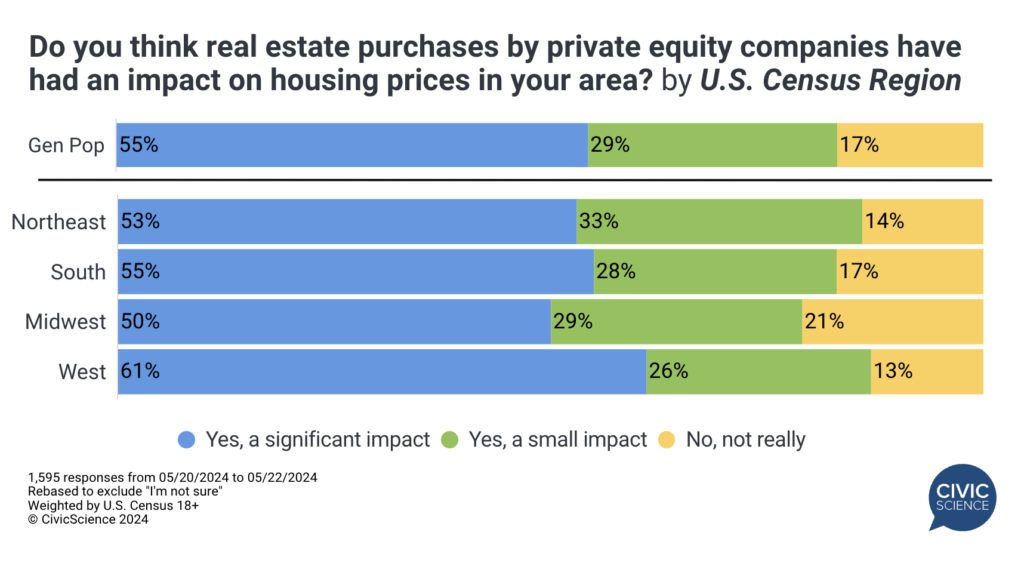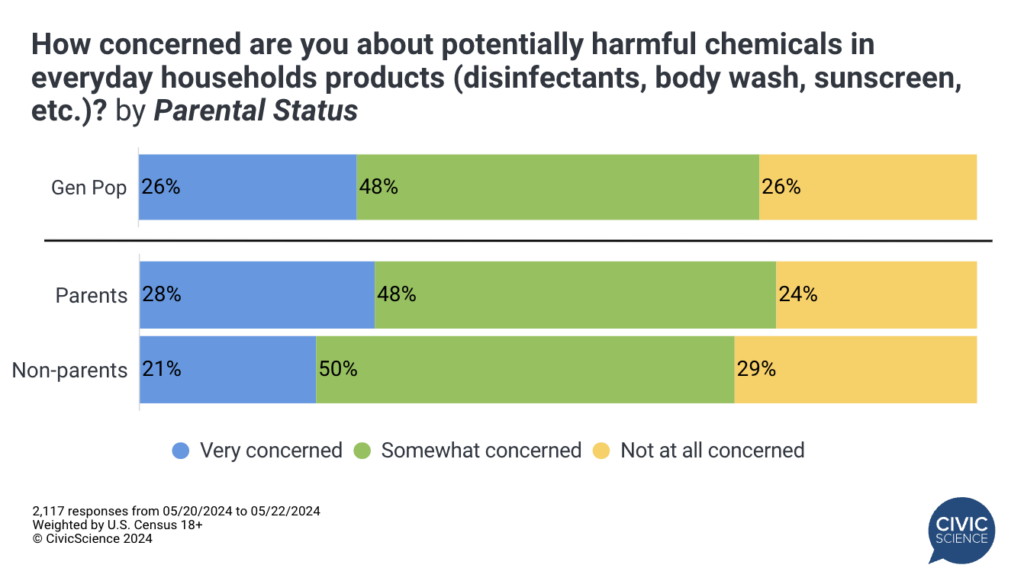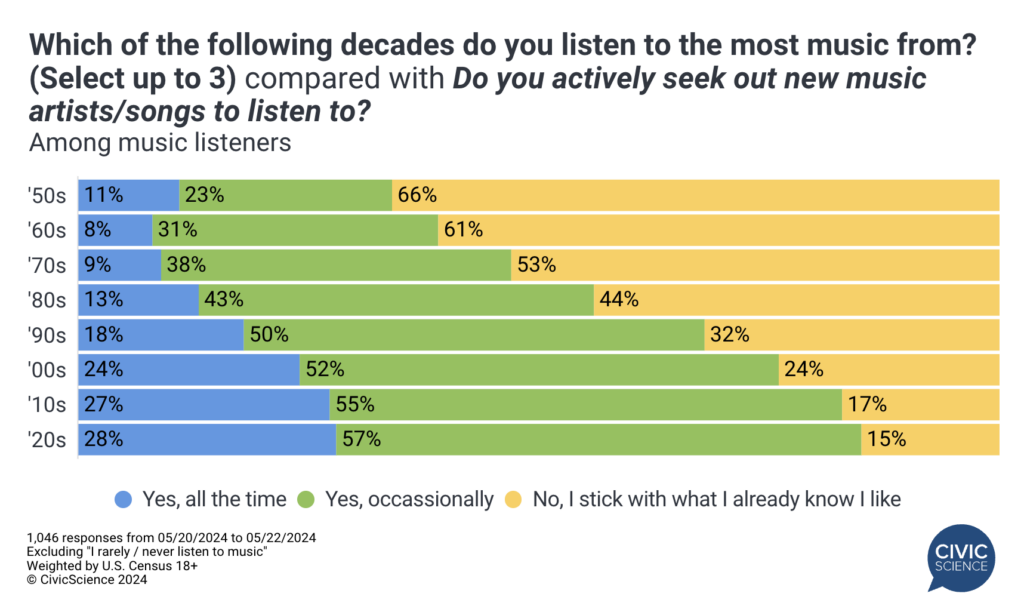CivicScience continually tracks current and anticipated consumer trends. Here are three key insights marketers should know this week. All insights are derived from the CivicScience Social | Political | Economic | Cultural (SPEC) Report, a weekly report available to clients covering the latest news and insights. Start here to learn more about the report and how to access the insights we don’t publish.
1. The majority of Americans cite private equity as having a significant impact on housing prices in their area.
Private equity (investment firms that buy public companies, real estate, and other assets with the goal of selling the investments for a profit at a later date) has increasingly become a topic of conversation among Americans. CivicScience data show that over 1-in-3 U.S. adults report strong concerns about the growth in private equity, and this increases to more than 50% among those who closely follow financial markets and the economy.*
One of the most frequently discussed and controversial aspects of private equity is its potential effect on housing prices. Wall Street firms have spent billions of dollars on single-family homes since the 2008 housing crisis, adding even more competition to an already expensive housing market. More than 50% of U.S. adults believe that private equity companies have had a significant effect on housing prices in their area. This is especially true in parts of the country where home prices have skyrocketed recently. Americans living in Western states are 11 points more likely than those in the Midwest to attribute high housing costs to private equity investors.

Answer our Polls: How positive or negative do you consider private equity’s overall impact on American society?
2. Nearly three-quarters of Americans are concerned about potentially harmful chemicals in everyday household products.
A new study found a link between chemicals used in thousands of common household products – including body washes, shampoos, baby wipes, and some disinfectants – and increased rates of neurological disorders like multiple sclerosis and autism. CivicScience data show that nearly 75% of respondents express concern about the chemicals used in everyday household products. Parents are seven points more likely than non-parents to say they are ‘very concerned’ about the presence of these potentially harmful chemicals.

3. Who is discovering new music?
An essay making the rounds online found that once people reach their early 30s, they tend to lose interest in discovering new music. New CivicScience data confirm that younger adults are much more likely to actively seek out new artists and songs, but plenty of older Americans still do it. Sixty-two percent of respondents, including 78% of Gen Z adults and 44% of Baby Boomers, say they sometimes go hunting for new songs.
In particular, Americans who listen to newer music are also much more likely to spend time searching for new tunes than those who mostly listen to music from earlier eras. A majority of respondents who prefer music from the ‘50s, ‘60s, or ’70s say they stick with what they know they like, while a majority of respondents who prefer music from the ‘80s onward actively seek out new artists and songs.

Join the Conversation: Which of these decades had the best music? 🎵
Clients receive the SPEC Report in full, plus access to real-time insights we don’t publish, driven by our database of over 500K questions. Contact us now to see it in action.
*n=1,588 from 5/20/2024 to 5/22/2024; Excluding “Not sure / no strong opinion”




